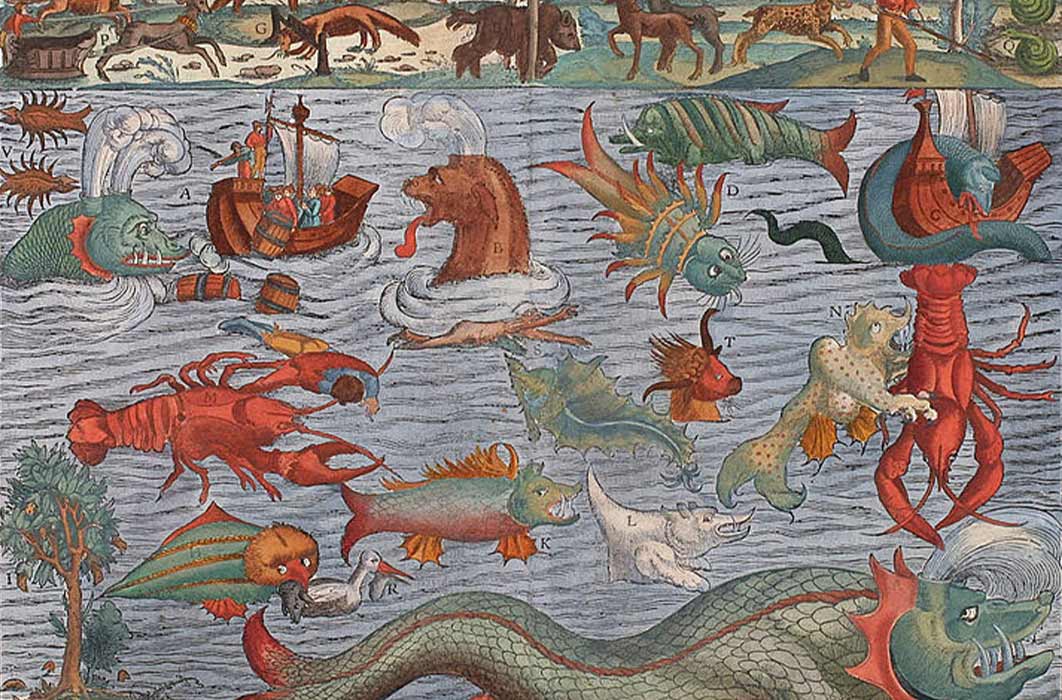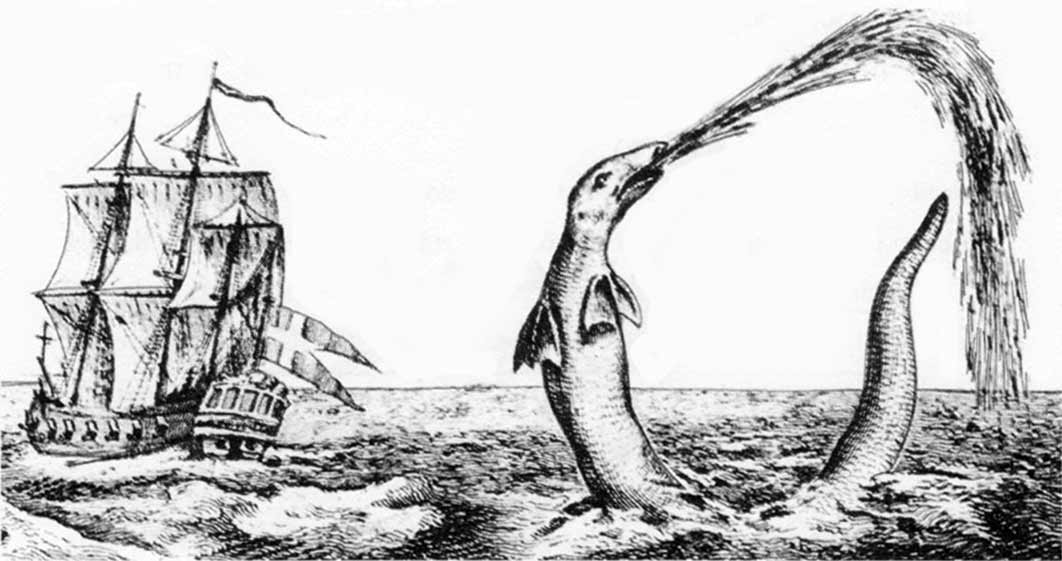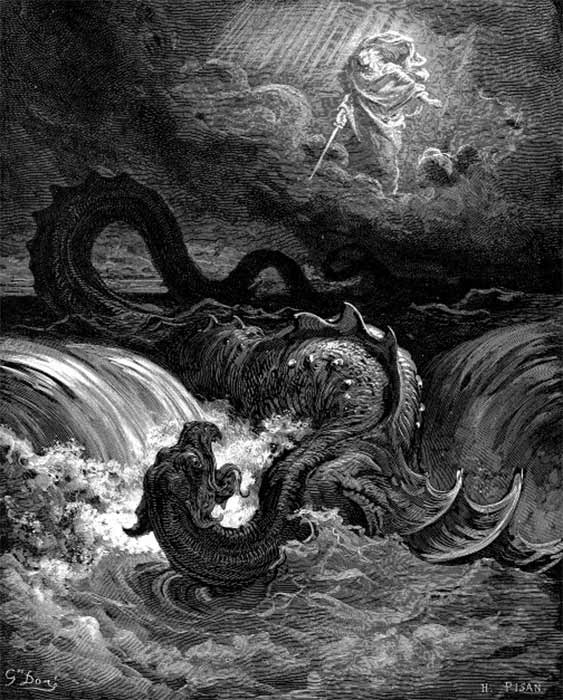
Mythological Sea Serpents And Lake Monsters Versus Scientific Sharks And Surviving Dinosaurs
Dinosaurs roaming the Amazon, plesiosaurs hunting in glacial lakes, half-octopus, half-shark creatures that drag ships down to the seabed and a giant anaconda, are but a few of the monsters recorded in the mythologies and written histories of North, South and Central America. Though most of these creatures can be explained away as ‘archetypes of mythology,’ there are researchers who suggest that some of the oldest accounts may be based on creatures that were witnessed before they became extinct in the remote past, or in some cases, ancient creatures that failed to become extinct. But in most instances, ancient sea-serpent reports were of creatures known well today, but who were unrecognized in history.

Sea serpent reported by Hans Egede, Bishop of Greenland, in 1734 (Public Domain)
In his 2016 book, People are Seeing Something: A Survey of Lake Monsters in the United States and Canada, author Denver Michaels examines the myths, legends, folklore, and eyewitness reports of the lake monster phenomenon south of the Mexican border, in Central and South America. This writer asks what parallels could be drawn between the creatures found to the south and their Canadian and American counterparts? One of the phenomena presented in this work is the ‘Monster of Lake Tota’, a giant creature that is as deeply associated with Colombia's largest lagoon, Lake Tota, at over 200 feet (61 meters) deep with a surface area of 21 square miles, (54 square kilometers) as the Loch Ness Monster is entrenched with Scotland’s longest lake at 36 kilometres (22.5 miles) in length with an average depth of 132 meters (433 feet).
Early Indigenous Reports Of Lake Monsters
The earliest report of the Loch Ness monster appears in the Life of St. Columba by the monk, Adomnán, written in the sixth century AD. Writing about a century after the events he described, Adomnán said the legendary Irish monk, Saint Columba, was pilgrimaging in the wild and dangerous pagan Scotland, spreading the word of Christ, when indigenous people told him of an aquatic monster, said to be a demon, which haunted the waters of Loch Ness. Columba witnessed the dead body of a Pictish man whom locals said had been attacked and killed by the water beast and had rendered the waters of the lake impassible. Columba instructed one of his followers, Luigne moccu Min, to swimming across the River Ness to lure the diabolical creature to the surface, and when it approached to attack, Columba “made the sign of the cross and said ‘Go no further. Do not touch the man. Go back at once.’ The creature stopped as if it had been pulled back with ropes and fled, and Columba's men and the Picts gave thanks for what they perceived as a miracle”.

Scottish legends say after defeating the aquatic beast of Loch Ness, Saint Columba went on to convert the Pictish King Brude to Christianity. Saint Columba Converting King Brude of the Picts to Christianity by William Hole, (1899.) Scottish National Portrait Gallery. (Public Domain)
Lake Tota Monster
Leaving Colomba in Scotland for Colombia in South America, the first known written reference to a monster in Lake Tota came almost 1,000 years after the reported aquatic beast in Loch Ness. However, the Scottish report came from a sixth century Christian evangelizer and the Colombian report was made by a 16th century Spanish conquistador and spreader of Christianity, Gonzalo Jiménez de Quesada (1509–1579). Furthermore, almost perfectly reflecting the reported monstrous events in Scotland, Quesada recorded that when he was pilgrimaging across the dangerous pagan landscape in Colombia, he had become well acquainted with the beliefs of the indigenous people of the area who spoke of “a black monster, said to be a demon, which haunted the waters of Lake Tota.” In this instance the frightful beast had rendered the waters of the lake impassible and locals told the Spanish explorers that Lake Tota was entirely unnavigable.
- Ancient Sharks and Crocodiles’ Nemesis: Man
- Mapping the Menacing Sea Monsters in Medieval and Renaissance Cartography
- Ancient Sea Monsters: Misidentified Fossilized Skeletons Now Revealing Hidden History of Ichthyosaur
The black monster, or demon, that is said to dwell in Lake Tota is a prominent figure in Muisca (indigenous Colombian) mythology, where it is known as Muyso Akyqake, or el Dragón in Spanish records. Before the Spanish arrived in 1537 this serpent played a central role in the origin legend of Lake Tota. A monstrous black snake lived in a great abyss in the land where the present-day Lake Tota is located and it terrified the local indigenous communities until one day the hero Siramena emerged and hurled golden discs at the serpent, which penetrated its scales, effectively killing it. The powerful priest Monetá removed a sacred emerald from the snake and gave it to the solar deity Bochica who cast it into the vast abyss and it filled with water forming Lake Tota.





